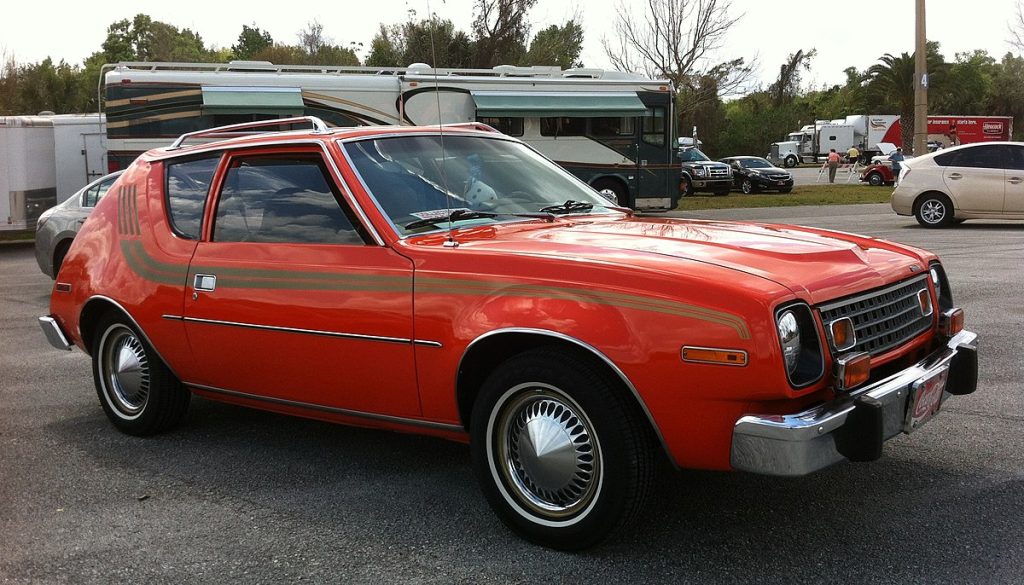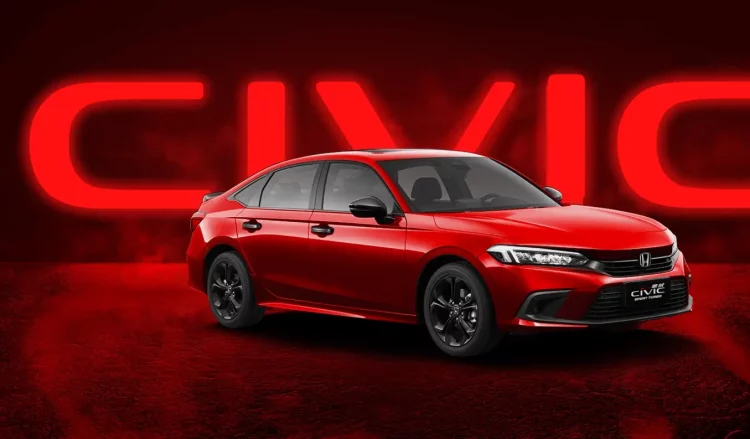The compact car segment has long been celebrated for offering a balance between efficiency, affordability, and convenience. With the growing demand for cars that can meet a wide range of driving needs, one of the key questions car buyers face is whether compact cars can successfully combine the daily convenience of city driving with the endurance required for long-distance travel. Compact cars are often touted as ideal for urban settings due to their size and fuel efficiency, but can they really handle the stress of long road trips? In this article, we will delve deep into the characteristics of compact cars, their suitability for both daily commutes and long journeys, and the advantages and disadvantages of choosing one for your diverse driving needs.
What Defines a Compact Car?
Before analyzing how compact cars fare in different driving environments, it’s important to define what makes a car “compact.” According to the United States Environmental Protection Agency (EPA), a compact car typically has a length between 161 inches (4.1 meters) and 187 inches (4.7 meters). These cars are designed to be smaller than mid-size sedans but larger than subcompacts. The key feature of compact cars is their ability to strike a balance between practicality, fuel efficiency, and cost, making them a popular choice for urban drivers.
Key Features of Compact Cars
- Size and Maneuverability: Compact cars tend to be smaller than full-sized sedans, making them easy to park and navigate in crowded urban environments. Their size allows for greater agility in city driving, where tight spaces and heavy traffic are common.
- Fuel Efficiency: Thanks to their smaller engines and lighter weight, compact cars are typically more fuel-efficient than larger vehicles, which makes them ideal for commuting or driving in stop-and-go traffic.
- Affordability: In general, compact cars are less expensive to purchase and maintain than larger vehicles, making them an attractive option for budget-conscious buyers. Their lower base price, coupled with better fuel economy, often results in lower long-term ownership costs.
- Technology and Comfort: Despite their small size, many compact cars are equipped with the latest technology, including advanced infotainment systems, driver assistance features, and efficient climate control. Manufacturers have also worked to improve the comfort of compact cars to make them more suitable for longer trips.
The Pros of Compact Cars for Daily Driving and Long-Distance Travel
1. Maneuverability and Urban Convenience
One of the primary benefits of owning a compact car is the ease with which it can be driven in city environments. In crowded urban areas, parking is often scarce and narrow streets can make maneuvering difficult. The smaller size of compact cars allows drivers to navigate through traffic more easily, find parking in tight spots, and avoid the stress that comes with larger vehicles. The compact design makes them ideal for short daily commutes to work, school, or running errands.
2. Excellent Fuel Economy
Fuel efficiency is one of the strongest selling points of compact cars. Due to their smaller size and lighter weight, compact cars generally consume less fuel than larger vehicles. This is particularly advantageous for drivers who use their car daily for commuting in urban settings, where stop-and-go traffic is common. The savings on fuel can add up over time, making compact cars a cost-effective option for daily driving. For long-distance trips, fuel efficiency translates into fewer stops at the gas station, allowing for longer stretches between refueling.
3. Lower Maintenance and Repair Costs
Compact cars tend to be less expensive to maintain and repair than larger vehicles. The smaller engines and fewer complex mechanical components make routine maintenance less costly. Additionally, parts for compact cars are often more affordable, and they are generally easier to find due to their widespread popularity. This makes compact cars an attractive option for drivers who want to minimize ownership costs.
4. Comfort and Convenience for Short Trips
Many modern compact cars are designed with comfort and convenience in mind. They come equipped with advanced technology, such as infotainment systems, adaptive cruise control, and parking assistance features, which make daily driving more enjoyable and less stressful. While they may not offer the luxury of a larger sedan or SUV, many compact cars provide enough space for a comfortable ride for two or more passengers, making them well-suited for short daily commutes.
5. Eco-Friendly Options
With an increasing emphasis on sustainability, many compact car manufacturers offer hybrid or electric versions of their models. These eco-friendly options provide even better fuel efficiency and lower carbon emissions compared to their gasoline counterparts. For environmentally-conscious consumers who want to reduce their carbon footprint, compact hybrids and electric cars offer an appealing solution for daily driving and long-distance travel.
6. Affordability
The relatively low price of compact cars makes them more accessible to a wide range of consumers. Whether you are purchasing a new car or a used one, compact cars are typically more affordable than larger vehicles. This affordability allows many buyers to get a reliable, fuel-efficient car without breaking the bank. For families or individuals on a budget, a compact car offers excellent value for money.
The Cons of Compact Cars for Daily Driving and Long-Distance Travel
1. Limited Interior and Cargo Space
One of the most significant drawbacks of compact cars is the limited interior space. While compact cars are fine for daily commuting, they may not offer enough room for long-distance travel, particularly if you have a family or a lot of luggage. The cramped back seats and limited cargo capacity can make road trips uncomfortable, especially if you need to carry a significant amount of gear, bags, or other items.
For individuals who travel frequently or have large families, this lack of space could be a dealbreaker. While some compact cars offer fold-down seats or hatchbacks to increase cargo capacity, they still cannot match the storage space found in larger sedans, SUVs, or minivans.
2. Less Comfort on Long Journeys
While compact cars are fine for short trips, their small size can make them less comfortable for extended periods on the road. The ride quality may not be as smooth as that of larger vehicles, and the limited cabin space can make it harder for passengers to stretch out and relax during long trips. Additionally, compact cars often have less advanced suspension systems compared to larger cars, which can result in a bumpier ride, especially on rough roads or highways.
3. Reduced Performance and Power
While compact cars are designed for efficiency, they often sacrifice power and performance in favor of fuel economy. For long trips, especially on highways or mountain roads, you may find that compact cars lack the acceleration and overtaking power of larger vehicles. The smaller engines typically found in compact cars may struggle with heavy loads or steep inclines, which can impact the overall driving experience during long-distance travel.
4. Limited Towing and Hauling Capacity
Most compact cars are not designed for heavy towing or hauling. If you need to tow a trailer, boat, or other large items, a compact car may not be the right choice. The towing capacity of compact cars is generally limited, and their small engines are not built to handle the weight of large loads. For drivers who need a vehicle for frequent hauling or towing, larger SUVs or pickup trucks would be a better option.
5. Road Noise and Comfort Features
While modern compact cars are equipped with various amenities, their small size can lead to increased road noise, especially on highways or rougher roads. The compact design often means that the cabin is not as well-insulated from external noise, which can make long trips less enjoyable. Additionally, the seats and interiors may not provide the same level of luxury and comfort as larger vehicles, which can lead to fatigue during long-distance travel.

Compact Cars and Long-Distance Travel: Are They Suitable?
The question of whether compact cars can meet the demands of long-distance travel ultimately depends on the specific needs of the driver. For individuals who travel alone or with one passenger, a compact car may be perfectly adequate for long road trips, provided that they are willing to sacrifice some comfort and cargo space. If your road trips involve a lot of luggage or passengers, or if you plan on towing or hauling items, you may find that a larger vehicle better suits your needs.
However, for those who prioritize fuel efficiency, maneuverability, and affordability, compact cars can be a practical choice for both daily commuting and long-distance travel. As manufacturers continue to improve their designs, many compact cars are becoming better equipped for longer journeys, with features like adaptive cruise control, improved ride quality, and more efficient engines.
Conclusion: Striking the Balance Between Daily Use and Long-Distance Travel
Compact cars offer a unique combination of efficiency, affordability, and convenience for daily driving. They excel in urban environments and offer excellent fuel economy, making them ideal for commuting and city driving. While they may not provide the same level of comfort, performance, and space as larger vehicles, modern compact cars are increasingly being designed to meet the needs of long-distance travelers as well.
Ultimately, the decision of whether a compact car is suitable for both daily use and long-distance travel comes down to individual preferences and driving habits. For those who can make a few compromises in terms of space and comfort, a compact car can serve as an excellent all-around vehicle. For those who prioritize more room and enhanced performance for extended trips, larger vehicles may be the better choice.
As the automotive industry continues to innovate, the lines between compact and larger vehicles may blur, and future compact cars may offer even more advanced features and improved capabilities for both urban and long-distance driving.


































Discussion about this post